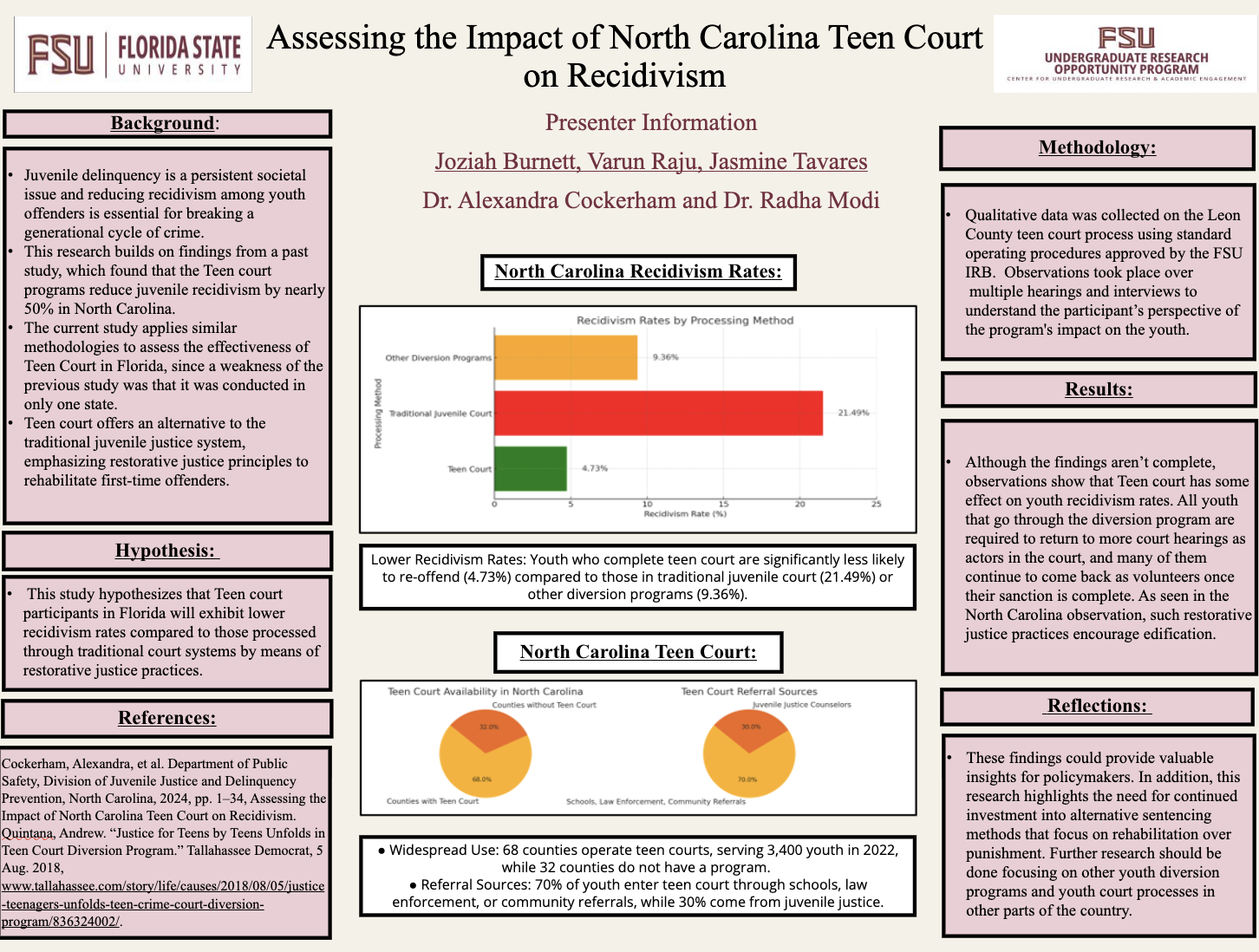Research Symposium
25th annual Undergraduate Research Symposium, April 1, 2025
Varun Raju Poster Session 2: 10:45 am - 11:45 am/ Poster #130

BIO
I’m a first-year, pre-law student at Florida State University majoring in Political Science and Economics, working through certificates in U.S. Intelligence Systems & Emergency Management and Homeland Security. My interests focus on public interest law, civil liberties, and national security. I’m involved with Service Scholars, Phi Alpha Delta Pre-Law Fraternity, Mock Trial, and UROP on-campus. My hobbies include playing jazz, running and weight-lifting, investing, and most sports. Through my work and research, I aspire to advocate for marginalized communities and advance meaningful policy change.
Assessing the Impact of North Carolina Teen Court on Recidivism
Authors: Varun Raju, Dr. Alexandra CockerhamStudent Major: Political Science and Economics
Mentor: Dr. Alexandra Cockerham
Mentor's Department: College of Social Sciences and Public Policy Mentor's College: Florida State University Co-Presenters: Joziah Burnett, Jasmine Tavares
Abstract
Juvenile delinquency, particularly recidivism, is a persistent societal issue as young generations continue to reoffend and stunt their potential. Reversing trends of recidivism becomes a crucial component to breaking generational cycles of youth convictions. This research expands upon its inception through North Carolina, revealing that teen court programs reduced juvenile recidivism by nearly 50%. Expanding those analyses into Florida, this study seeks to understand innovative practices used in teen court and its effectiveness as it relates to recidivism.
Teen court offers a constructive alternative to traditional juvenile justice systems, encouraging restorative justice principles to rehabilitate first-time offenders. This study hypothesizes teen court participants to exhibit lower recidivism rates in Florida when compared to those who undergo traditional court systems.
To corroborate analyses, qualitative data was gathered from juvenile court records, interviews, and teen court program records. Identifying patterns for recidivism exhibition, comparative analysis was conducted through a matched pair of a teen court participant and a traditional court participant. Finally, statistical methods were applied to assess the likelihood of either group to recidivate.
Conclusively, results demonstrated teen court to reduce youth recidivism. As a pre-law student, high recidivism rates are consequential to public administration, yet preventable when considering alternatives such as teen court. These findings consist of invaluable insights to develop policies and bolster teen court to sway juvenile delinquency into a decline, fortifying youth growth. On a greater scale, this study pertains to the favorable rehabilitative practices, as opposed to more widely accepted retribution for offenses.
Keywords: recidivism, teen court, youth rehabilitation


